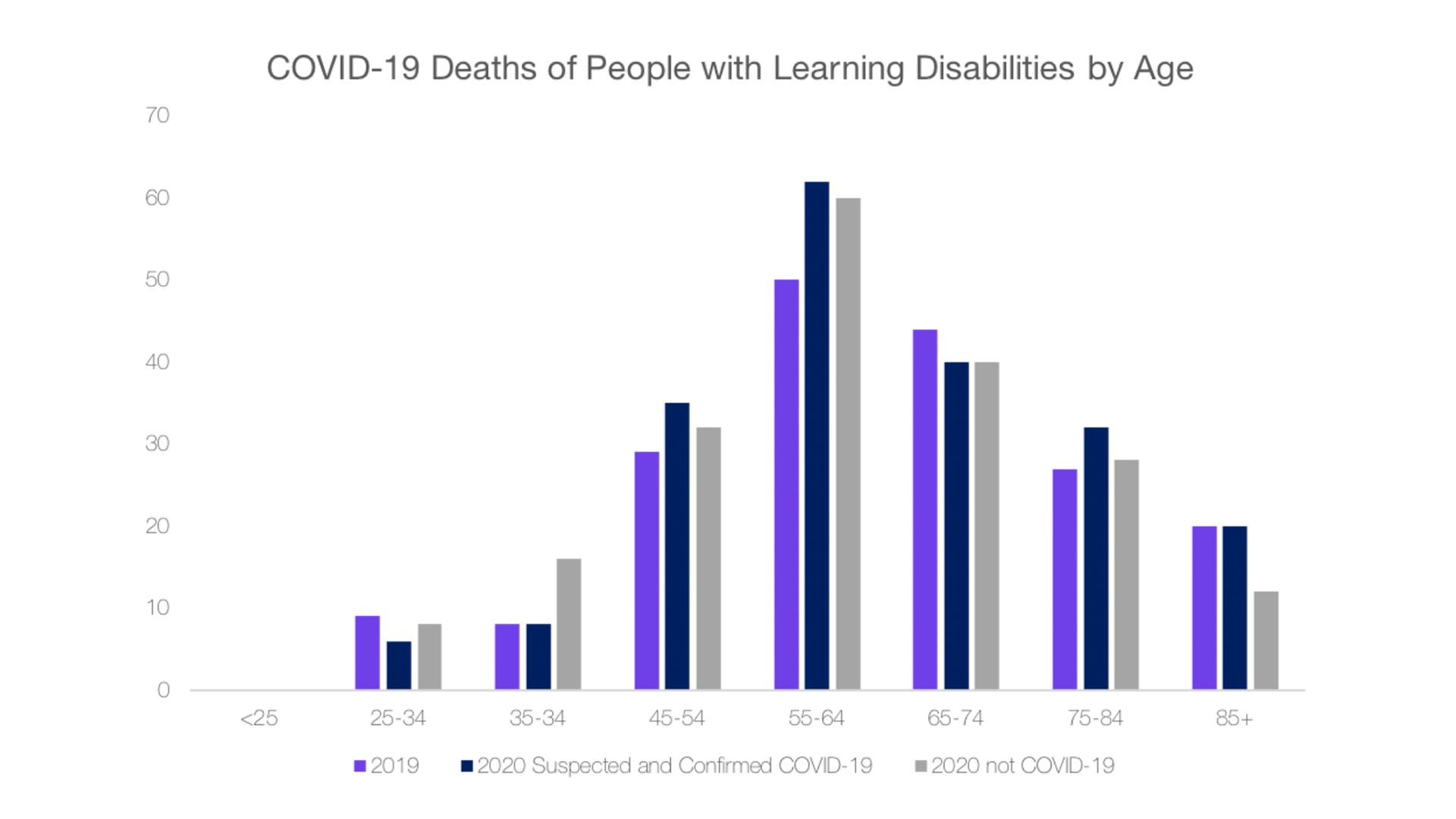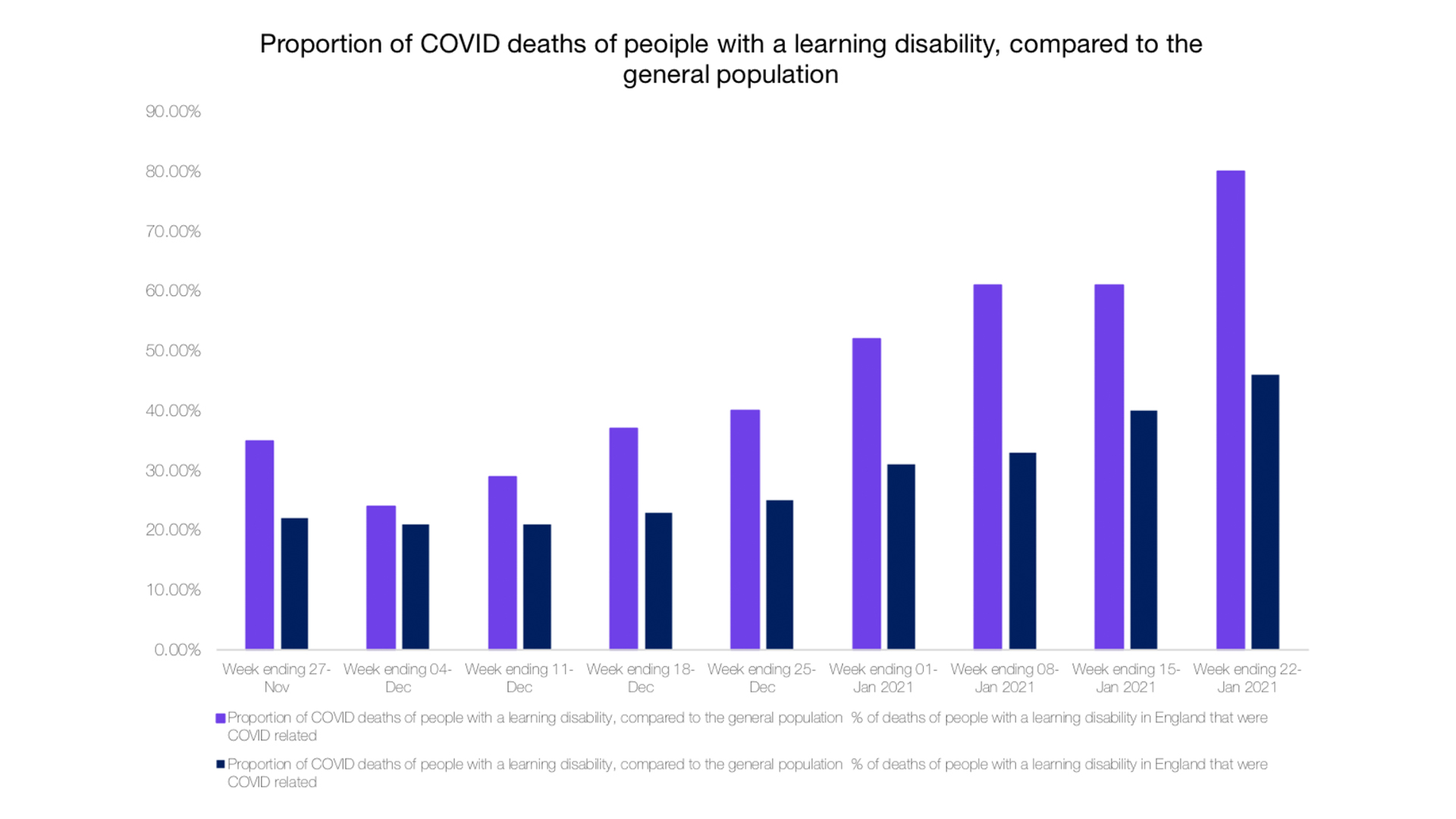
Without In-Depth System Connected Data and Analytics, Healthcare will Fail those with Learning Disabilities & Autism.
2022 needs to be the year that we step up. Especially for those with Learning Disabilities & Autism.
In no uncertain terms, the pandemic has shed an unflattering light on how we provide healthcare for those with Learning Disabilities and Autism (LD&A).
According to its newly released 2022/2023 Priorities and Planning Guidance, the NHS has announced its intention to prioritise ‘mental health services for people with a learning disability and/or autistic people’.
In light of this initiative, it is imperative that health leaders invest in the tools that catalyse growth, transformation and improve access to community health services. Should the scarcity of innovations persist – those that use deep analytics with the potential to ensure success for multiple LD&A pathways – this will mean that patients continue to suffer unnecessarily.
In 2021, the Care Quality Commission (CQC) reported a staggering 134% increase in deaths of people with learning disabilities. To stem the disproportionate rise of mortality rates among LD&A inpatient groups – increasing up to 386 from last year – it is clear that healthcare needs to look beyond historic ‘one size fits all’ approaches to care provision. In short, we need to lean in on readily available tools and structures that tangibly improve LD&A patient experiences and outcomes.

As a passionate advocate for equity across all aspects of healthcare, RwHealth has dedicated further development of tools like our Data Science Platform (DSP) and Mental Health Flow Tool (MHFT) to improve LD&A patient pathways and visibility.
Combining the necessary technologies, data solutions and drive to support patients with LD&A – as demonstrated with RwHealth’s partnership with some of its Healthcare partners – will be key to how clinical and operational teams finally surpass historic challenges levied on the LD&A patients.
Data Needed to Drive COVID-19 LD&A Service Improvement
Our experience in driving on-site partnerships with healthcare colleagues has made clear that data-driven solutions will inspire long-term improvements for LD&A services; particularly in context of COVID-19 and recovery.
Already facing a distinct set of healthcare challenges, COVID-19 has only exacerbated the quality of care this patient group receives. The NHS reports that LD&A inpatients are five times more likely to be admitted with COVID-related conditions; they also face a mortality risk eight times greater than non LD&A patients.

Alongside these challenges, increasing demand, workforce shortages – particularly of specialist staff, and resources for high quality services are potent blockers. An independent review concurrently reveals that discharge for over 2,070 patients with LD&A were delayed over the Christmas period. In addition, a further 800 patients were discharged late, despite being considered ‘fit for discharge’.
These issues further hamper many NHS Trust’s ambitions to address its 5.8 Million strong waiting list; 1.6 Million of which are still waiting for mental health care.
What can Our Health System Do Better to Support those with LD&A?
For Trusts to address critical issues affecting LD&A care, they will require further visibility of the patient journey.
RwHealth’s technology gives healthcare providers the ability to face this challenge, by offering a view of the patient journey with unprecedented granularity.
We achieve this by providing Trusts with a combined, birds-eye view of multiple pathways; consolidated from all system data from local authorities, Community Trusts, Primary Care Organisations, Mental Health and Acute Trusts.
Through the DSP and MFHT, clinical and operational teams benefit from the ability to gauge the physical and mental health needs of each admitted patient. In unifying multiple pathways, our approach truly promotes the depth and connectivity needed to optimise LD&A patient care.
Our passion for improving the lives of LD&A patients drives our dedication to helping clinical and operational teams manage the complex care for LD&A patients.
To learn more about our work and data solutions within Learning Disabilities & Autism, please feel free to contact us at info@realworld.health.
